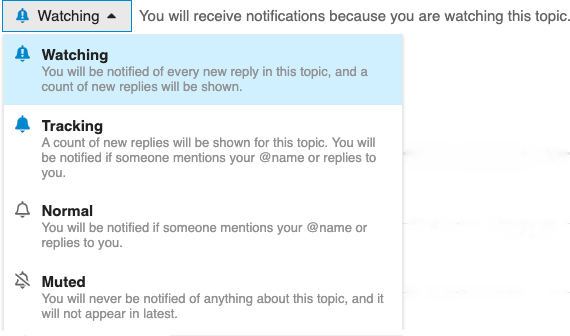dgraph
 dgraph copied to clipboard
dgraph copied to clipboard
Feature: Add foreach() function.
Experience Report
What you wanted to do
I would like to use loops in queries and upsert blocks. In this case something similar to "foreach".
What you actually did
There's nothing similar to this in Dgraph right now.
Why that wasn't great, with examples
A loop like foreach would be very useful. There are situations that we want to iterate over objects in a query. Whether to display a particular form structure in the response or to create specific mutations in the upsert block. Which is not currently supported in Dgraph.
Syntax
I believe that Syntax from foreach would be very similar to the K-shortest path.
More examples
I think a "foreach" func would be the solution for almost all the things like "groupby value".
Ref of a DB doing something similar to it: https://neo4j.com/docs/cypher-manual/current/clauses/foreach/ https://docs.mongodb.com/manual/reference/method/cursor.forEach/
A foreach loop could solve this issue #4779 in a blink of an eye (eliminating the misuse of an extra block). I gonna add a comment there with an example using "foreach".
see https://github.com/dgraph-io/dgraph/issues/4779#issuecomment-621579502
In this link https://discuss.dgraph.io/t/foreach-func-in-graphql-loops-in-bulk-upsert/5533 I have other use cases. Most of them related to upsert block, issues with Facets bad responses (e.g: #4160), and so on.
Pay attention that this link is a little old. I used different syntax just to illustrate.
Reference for the group by issue: https://github.com/dgraph-io/dgraph/issues/4170
e.g: "for each group found in groupby create a new object to use in response".
foreach(in: PARAM1, title: PARAM2).
> For each UID in PARAM1, create a new object in the response with the title in PARAM2
{
var(func: has(kind)) @groupby(kind) {
T as count(uid)
}
foreach(func: foreach(in: T, title: kind)) {
name
age
total : val(T)
}
}
Desirable Result
{
"data": {
"q": [
{
"dog": [
{
"total": 1
},
{
"uid": "0x1",
"name": "Bingo",
"age": "3"
}
]
},
{
"animal": [
{
"total": 2
},
{
"uid": "0x1",
"name": "Bingo",
"age": "3"
},
{
"uid": "0x3",
"name": "Angry Purr",
"age": "1"
}
]
},
{
"cat": [
{
"total": 1
},
{
"uid": "0x3",
"name": "Angry Purr",
"age": "1"
}
]
}
]
}
Any external references to support your case
https://discuss.dgraph.io/t/foreach-func-in-graphql-loops-in-bulk-upsert/5533
and all of the sudden dgraph queries are turing complete :grin:
This would be useful for me too. I will be working with data and provide users a interface to do bulk actions on data. Set a tag on all contacts that have X, etc.
I also will be working with contact data managing children in school grades and each year need to do bulk updates to adjust school grades.
Also, working with CRM there will be dozens of use cases for looping across data and processing it. If this is not on the db layer then it will be done in application layer. Doing it at a lower layer I believe will be more beneficial and reduce network load.
Re https://discuss.dgraph.io/t/filter-on-absence-of-an-edge/8333/5, this would be useful for me too. Similar to above comment, I am faced with now pushing logic to the application layer.
Github issues have been deprecated. This issue has been moved to discuss. You can follow the conversation there and also subscribe to updates by changing your notification preferences.
